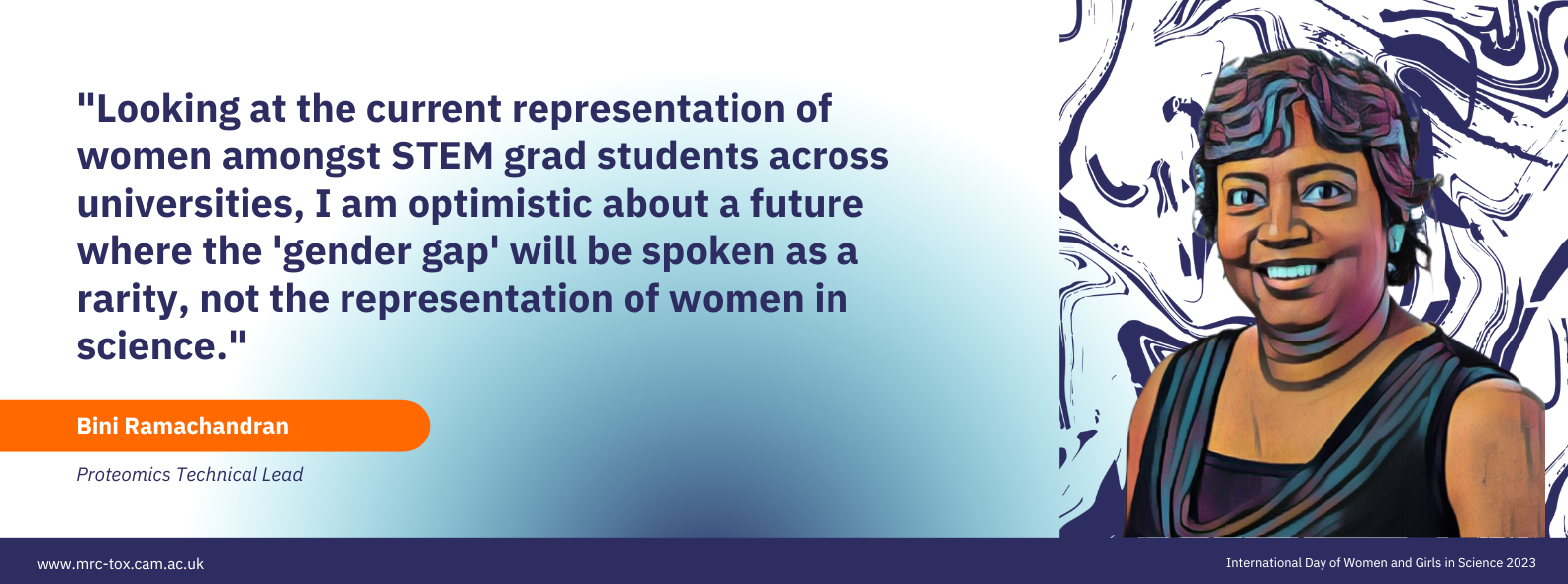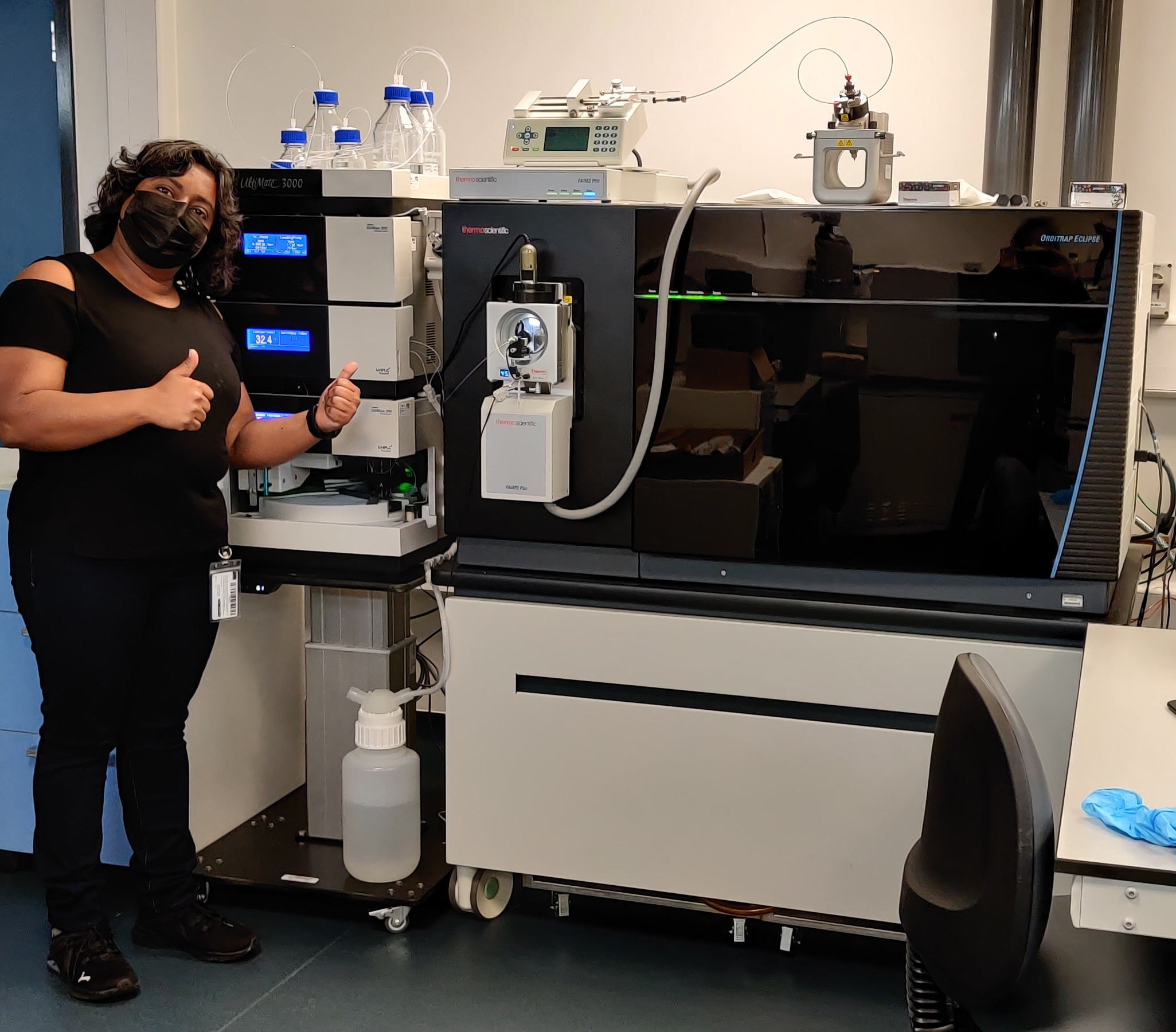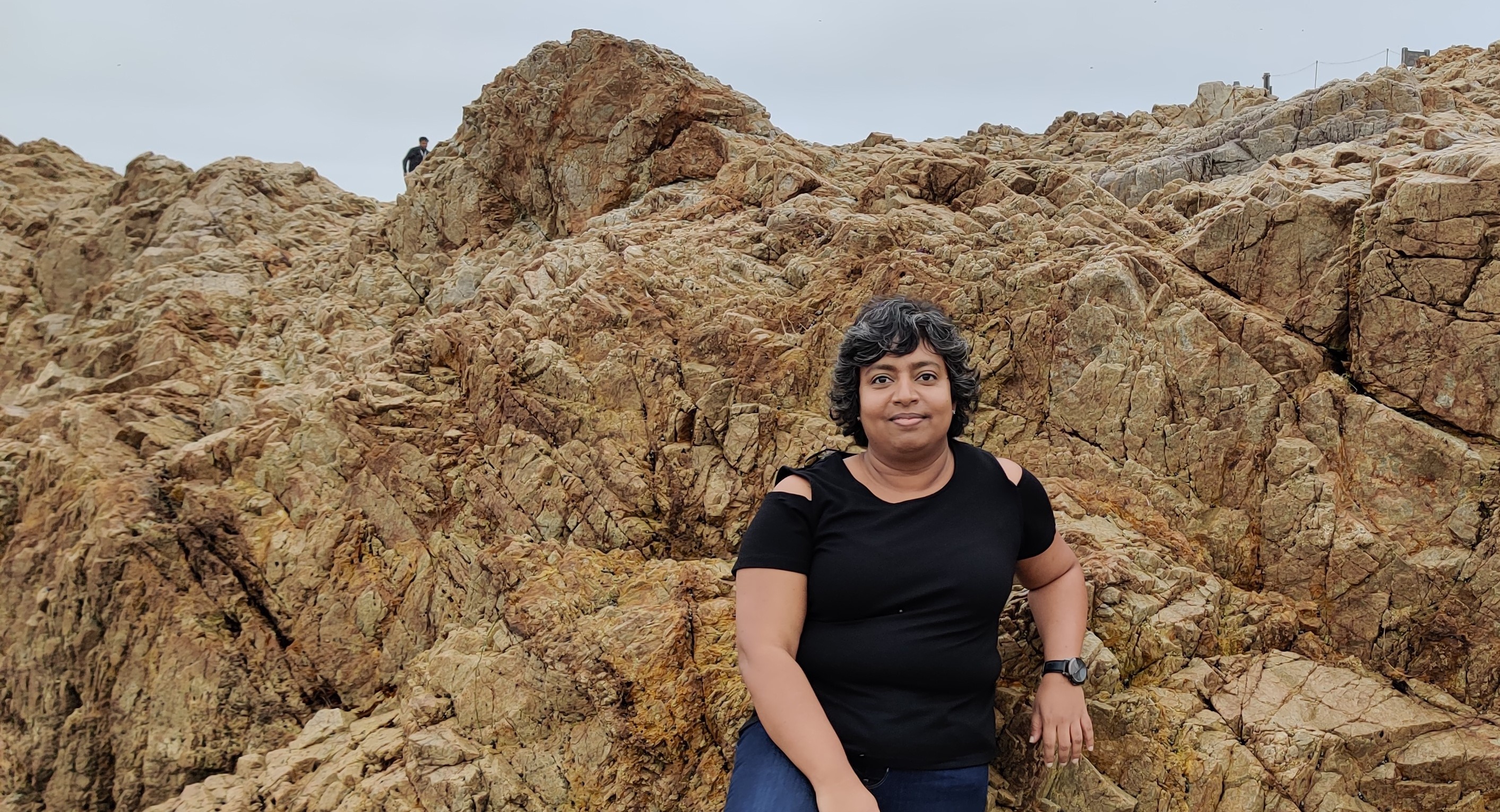To mark International Day of Women and Girls in Science 2023, we are sharing profiles of some of the women from the MRC Toxicology Unit highlighting their careers, experiences, passions and more. Today we want to introduce you to Bini.
Who are you and what is your role?
I am Bini Ramachandran, the Proteomics Technical 'Nerd', well I mean Lead, in the Proteomics Core Facility of the MRC Toxicology Unit. My role here involves developing and executing mass spectrometry workflows to meet proteomics-related scientific goals of the researchers in the Unit.
What has your career in science looked like so far?
The first stage of my career began with teaching biotechnology to undergrad students for a short period of time before starting my PhD. Back then I was fascinated with immunology and my PhD mentor was amongst the pioneers in the field of infectious diseases. He used techniques called proteomics and mass spectrometry in the lab and I got to use these to study host responses to infections. During this time, I realised that I am more passionate about the technologies that make it feasible to do science.
This passion for technology lead to the second stage of my career as an Application Specialist in the mass spec instrumentation industry. Here, I had extensive exposure to the scientific instrumentation arenas and got to meet many research groups applying mass spectrometry to find answers to diverse areas of research. Later I moved back to academia as a more versatile mass spectrometrist. Both my post-doc tenures involved extensive use of this technology and I knew this was what I wanted to do as a career; design and execute mass spec workflows to address the specific scientific research questions of life science researchers.
Finally, I joined the MRC Toxicology Unit in September 2021. The past year and a half I have worked on so many diverse proteomics projects, alongside my equally nerdy boss, for the incredible researchers at the Unit. At the risk of being cheeky, my career has somewhat been true to the saying 'do what you love and you'll never work a day in your life'. A job where nerdy mass spectrometrists get to play with their big instruments toys all day, every day.
What made you want to work in science?
I would think my interest in science began in my school days. Mostly because I found preparing for a science test was much easier compared to memorising assorted facts for the rest of the subjects. Years down the lane, it was only natural to enrol for a PhD and let science define my career. As someone who finds it hard to deal with monotony, I would say choosing a science career was the only right professional choice.
What have been the biggest challenges you have faced being a woman in science?
Fortunately, I have not faced any barriers or challenges being a woman in science. This may be because I turned out to be a lucky one surrounded by a very supportive community. As a woman in science, I am familiar with the incidences of discrimination and I do recognise that many women in science find themselves at the receiving end of microaggressions, disrespect and/or condescension from a prejudiced community.
Other than science, what is most important to you in life?
Despite being a self-proclaimed science nerd, it is important for me not to keep my life centred around science and career all the time. I am a strong practitioner of unwinding from work and focussing on myself. As much as I like to play with my mass spec toys, I also like to have some free time spent doing nothing or just being a couch potato as a way of recharging. Although I may not be qualified as a typical outdoorsy soul, I sure love to travel around solo with my camera and take photographs.
What do you think we need to do better to support women in science careers?
Looking at the current representation of women amongst STEM grad students across universities, I am optimistic about a future where the 'gender gap' will be spoken as a rarity, not the representation of women in science. Until we reach that future, the science community should keep doing everything that has been encouraging more women to pursue a science career. One point I would like to emphasise is how important it is to acknowledge the presence and contributions of women colleagues without any implicit/explicit biases or discrimination.
What advice would you share with other women in science or girls interested in getting into science?
My two cents to women and girls in the pursuit of a science career is don't shy away from networking. Find a network of peers and mentors from your field whom you can reach out to when in need of direction and navigating your career. Unlike the general perception, you don't really have to be an extrovert or be good at small talk to build a professional community around you. Embrace your geeky self and don't feel like an imposter.




